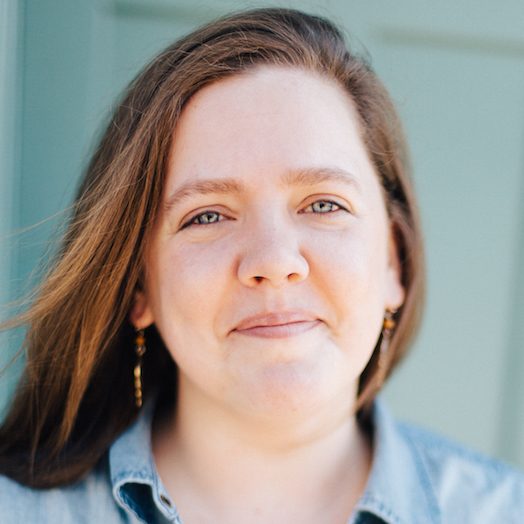Daring to live as people committed to the movement of truth, beauty, and goodness brings us face-to-face with the forces that oppose that movement in the name of power and control. We see that opposition every day in news headlines, in the rhetoric of bias and hate, and in the walls we erect to divide ourselves from each other. In this powerful video from Symposia 2018, Kristen Gilfillan (MA in Counseling Psychology, ‘13) argues that the most insidious forces of oppression at work today—including white supremacy, patriarchy, colonialism, individualism, and capitalism—influence and intersect in a form of oppression that is somehow more culturally acceptable: the widespread shaming and hatred of fat bodies.
Kristen’s presentation, “‘Yeah, Well, Most Temples I’ve Ever Seen Are Huge!’ and Other Things We Forget When Talking about the Body Being the Temple of the Holy Spirit: Casting a Life-giving Vision for Fat Bodies in the Church,” is an honest and compelling perspective on the complexity of living as a white woman whose body benefits from certain privileges while also being the target of the oppressive—and wildly successful—diet culture.
“Diet culture sets forth an ideal body that is white, cisgender, straight, able-bodied, and thin,” says Kristen, “and any deviation from these ideals is deemed disgusting and to be feared.” The diet industry—which made $68 billion in 2017—promotes the erasure of fat bodies and the damning assumption that they are best viewed as punchlines, caricatures, or ‘before’ pictures.
“Diet culture wants our money and the perpetuation of the white, thin ideal. It cares for us not one bit.”
In a stunning rebuttal to the lies of diet culture, Kristen invokes the crucial Scripture assertion that our bodies are temples of the Holy Spirit, inviting us to consider how we might interact with our bodies—in all of their beautiful diversity—with the fruits of that spirit. “I think the invitation is to practice faithfulness to what we hear […] faithfulness to the parts of our bodies’ stories that we would prefer to shed like pounds rather than invite to deeper restoration.”
“Our bodies are so profoundly for us if we let them be. And this must be relearned. This must be practiced. To establish enough trust with our bodies, and to build secure attachments to our internal cues, requires so much endurance, so much patience. Waging peace with our bodies can teach us to persevere, tenacious in the hope that there will be an experience beyond the one we’re in right now.”
We are endlessly challenged, inspired, and energized by the courageous and thoughtful work of our alumni. You can view all the Symposia 2018 presentation videos here.


